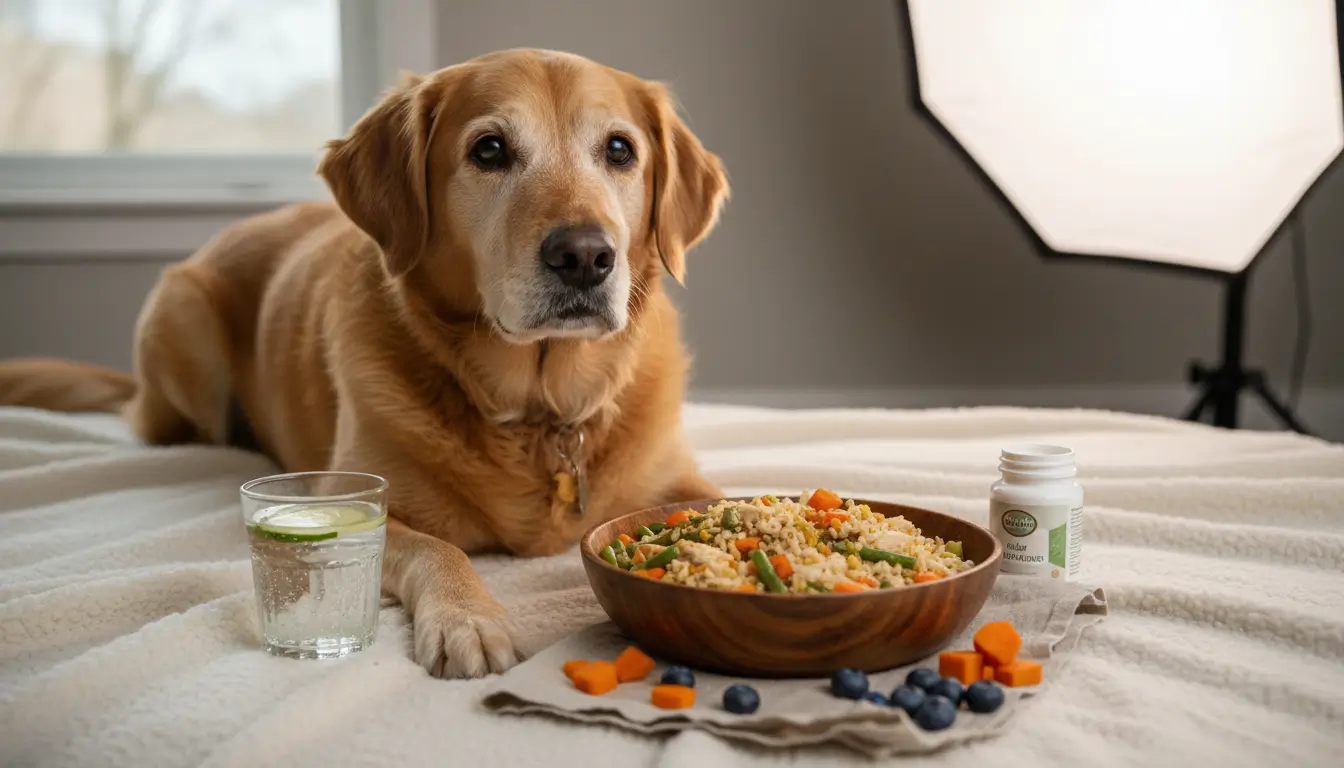Guide to Senior Dog Nutrition Needs

As dogs age, their nutritional requirements evolve, much like ours. Your faithful companion, who once bounded with endless energy, now deserves a diet tailored to support their golden years. This guide to senior dog nutrition explores key nutrients, health concerns, and practical tips to ensure your older dog thrives.
We’ll cover essential nutrients for ageing pets, common health issues, how to switch to an older dog diet, weight management strategies, and when to seek veterinary advice. By the end, you’ll be equipped to make informed choices for your senior canine health.
The Importance of Senior Dog Nutrition
Senior dogs, typically those over seven years old, experience physiological changes that affect their dietary needs. Metabolism slows, muscle mass decreases, and organ function may decline, making senior dog nutrition crucial for maintaining vitality. A well-balanced aging pet food can help prevent obesity, support joint health, and boost immunity.
Neglecting these needs can lead to issues like nutrient deficiencies or exacerbated age-related conditions. Vets often recommend switching to specialised senior formulas around middle age for larger breeds. This proactive approach ensures your dog enjoys a higher quality of life.
Research from the World Small Animal Veterinary Association (WSAVA) highlights that tailored nutrition can extend lifespan and improve well-being in older dogs [1]. Investing time in understanding your pet’s requirements pays dividends in their later years.
Essential Nutrients for Senior Dogs
What nutrients do senior dogs need? As dogs age, their bodies require adjusted levels of proteins, fats, and vitamins to combat wear and tear. High-quality protein supports muscle maintenance without overburdening kidneys, while antioxidants like vitamins E and C protect against oxidative stress.
💡 Key Insight
Focus on glucosamine and chondroitin for joint health, as these are vital for senior canine health in breeds prone to arthritis.
Fibre aids digestion, which often slows in seniors, preventing constipation. Omega-3 fatty acids from fish oil reduce inflammation and promote skin and coat health. Controlled calorie intake is essential to manage weight, given reduced activity levels.
A study by the American Kennel Club (AKC) notes that seniors need 20-25% less calories than adults but higher nutrient density [2]. Consult labels for senior dog nutrition formulas meeting AAFCO standards.
Common Health Issues in Older Dogs and Diet’s Role
Common health issues in older dogs include arthritis, dental problems, kidney disease, and cognitive decline. These conditions can be mitigated through targeted older dog diet choices. For instance, low-phosphorus foods support kidney function, while soft textures ease chewing for those with dental issues.
“Over 80% of dogs over 10 years old suffer from some form of joint disease, where nutrition plays a key role in management.” [3]
Obesity exacerbates mobility problems, so calorie-controlled aging pet food is vital. Heart disease may require lower-sodium options. Regular monitoring helps adjust diets to address emerging issues.
Integrating supplements like probiotics can enhance gut health, reducing risks of gastrointestinal upset common in seniors.
How to Transition to Senior Dog Food
How to transition to senior dog food? Abrupt changes can cause digestive upset, so a gradual switch over 7-10 days is recommended. Start by mixing 25% new food with 75% old, increasing the proportion daily while observing your dog’s response.
This method minimises stress and allows adaptation. If issues persist, revert and consult a vet. Patience ensures a smooth shift to an older dog diet.
Best Foods for Senior Dog Weight Management
Best foods for senior dog weight management? Opt for high-protein, low-calorie formulas to preserve muscle while controlling fat intake. Ingredients like lean meats, vegetables, and whole grains provide satiety without excess calories.
- Look for foods with under 300 kcal per cup.
- Incorporate fibre-rich options like pumpkin to promote fullness.
- Avoid high-carb fillers that spike blood sugar.
Portion control is essential; weigh food and adjust based on activity. Treats should be limited to 10% of daily intake, choosing low-calorie alternatives.
According to the RSPCA, maintaining ideal weight can add up to two years to a senior dog’s life [4]. Regular weigh-ins track progress effectively.
When to Consult a Vet for Diet Changes
When to consult a vet for diet changes? Seek advice if your dog shows unexplained weight loss, lethargy, or changes in appetite. Vets can recommend personalised plans, especially for underlying conditions like diabetes or hypothyroidism.
Annual check-ups are ideal, but immediate consultation is needed for vomiting, diarrhoea, or mobility issues. Blood tests assess nutrient levels and organ health.
Don’t self-diagnose supplements; professional guidance prevents interactions. A vet’s input ensures safe, effective senior canine health strategies.
Additional Tips for Optimal Senior Canine Health
Beyond basics, consider fresh foods like blueberries for antioxidants or salmon for omegas in your senior dog nutrition routine. Small, frequent meals aid digestion.
- Encourage light exercise like gentle walks.
- Monitor water intake to prevent dehydration.
- Track health with a journal.
Holistic care combines diet with mental stimulation, such as puzzle toys. This comprehensive approach fosters longevity and joy.
In summary, prioritising senior dog nutrition through informed choices enhances your pet’s well-being. Start by assessing their current diet and consult your vet today. Your older dog will thank you with wagging tails and brighter days.




